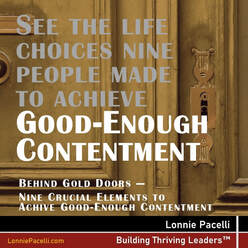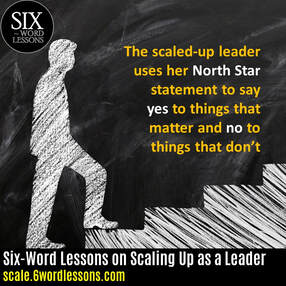
Several years back I got into a conversation with a colleague about our kids. He told me of how he took his daughters to the circus. He wasn't able to afford it, but decided to go anyway. While they were at the circus, he looked over at his oldest daughter. The look on her face was one of utter contentment and delight. Seeing his daughter's face caused my colleague to get all choked up. The price of admission was redeemed through a priceless moment that my colleague shared with his daughter.
0 Comments

Some time back I did an interview on the importance of dinnertime. It reminded me of the importance of eating dinner as a family in the work/life balance equation so I thought I would post it here as well:
In your view, why aren't families sitting down to the dinner table like they did in the 1950s? Simple; families have allowed themselves to get so busy that they have come to accept that sitting down together for dinner isn't a necessity. It all starts with the parents; if they don't sit down together or enforce that the family will be eating together, the family won't do it. Make sitting down together the rule and not doing so the exception. 
My name is Lonnie, and I'm a victim of identity theft.
So check this out. A buddy of mine wrote a Facebook post about how someone stole his daughter's Social Security number and filed for unemployment benefits with Washington State's Employment Security Division (ESD). Having never occurred to me, I decided to go to ESD and attempt to file an unemployment claim. After I entered the information I received the following message: The Social Security number (SSN) you entered already exists and is linked to this partly hidden email address: *****@fasternet.co  One Monday morning, Kyle showed up for a status meeting with his project team. Eva, a team member and close friend, noticed a pattern: Kyle looked perpetually exhausted. Concerned, she approached him, “Kyle, are you okay?” “Yeah, just a hectic weekend with kids’ activities and prepping for the exec meeting this week.” “I certainly understand,” Eva said. “Are you taking time to rest up? I know how demanding your life is right now.” “I’ve got great work/life balance. It’s just very busy with everything going on,” Kyle said. “Kyle, you remind me of my father. Always running at 100 miles an hour, thinking that ‘work/life balance’ by default meant rest. That was until he had a heart attack, caused by all the stress of trying to keep up. Rather than deciding to get some rest, the decision was made for him. Work/life balance doesn’t guarantee rest.” Kyle paused for a moment, reflecting on Eva’s advice. “I hear you.” “Be careful, I’m concerned about you.” Eva smiled at Kyle and walked back to her desk. Read more at ProjectManagement.com  Recently I was having a discussion with a colleague. During the chat he made a comment that really resonated with me: “I love my career—not just because of what I do, but also what it enables me to do.” That one sentence seemed so simple, but so impactful. He was saying that his career was fulfilling, provided financially, and afforded him the flexibility to do non-work things that were really important to him. It was about both a great career and the benefits his career brought to the other aspects of his life. As I ruminated over the concept, it occurred to me that it might be helpful to put a bit of definition around the “enabling me to do” phrase. I’ve written in the past about finding contentment in nine different life areas and thought that to be a reasonable starting point, as follows: Read more at ProjectManagement.com 
So let’s talk about over-used terms for a minute.
If you’ve been in the business world for any length of time you’ve likely heard your management espouse the desire for employees to achieve greater work/life balance. Many U.S. companies have adopted programs to help employees strike a better life balance by providing health club benefits, entertainment discount programs, and additional time off for events such as the birth of a child. Despite all this, Americans are of the most overworked and flat-out busy people on earth, recently surpassing the Japanese and long surpassing the Europeans. With all this discussion of work/life balance, how can we in the U.S. also be of the most overworked people in the world? The answer is pretty simple; many of us talk work/life balance, but don’t live work/life balance primarily because we don’t know how to do it.
 One day, my wife Patty and I were eating lunch when she said, “I’ve been seeing some social media posts about mental load; have you ever heard of it?” “No,” I answered, wondering if I’ve been missing out. She then told me more about what she’s seen and its impact on people. Intrigued by the term and her explanation, I decided to do a bit more research on mental load. Here’s a little of what I learned from healthline.com: Read more at ProjectManagement.com.  One of my favorite family movies is Mary Poppins. My grown kids will still tell you that my favorite part was watching Dick Van Dyke’s character Bert dance with the animated penguins. (Even as I type this, I have a smile on my face just thinking about his facial expressions as he flopped around in his sagging pants.) Aside from Van Dyke’s talent as a dancer, there was something else about Bert’s character that interested me: Bert was a one-man band, chalk artist, chimney sweep, and kite salesperson. The jobs had little in common other than the fact that Bert had skills that enabled him to perform each job. While Bert may have been happy doing each of the jobs, it doesn’t appear on the surface that there was any intentionality to his job choices. Having a wayward approach to career changes worked great in the movie, but it might not work so well in your professional life. Read more at ProjectManagement.com.
|
Topics
All
Reprints
Contact Lonnie about article reprints. Please specify article you wish to reprint. Backlist
See Lonnie's Amazon Author Page Archives
July 2024
|
Lonnie Pacelli - Building Thriving Leaders™
Insightful | Creative | Direct Advice to Help Leaders Help Themselves
Keynote Speaker | Board Director | Autism Advocate | Author | Project Management Expert | Microsoft/Accenture Veteran
See his books on Amazon
Insightful | Creative | Direct Advice to Help Leaders Help Themselves
Keynote Speaker | Board Director | Autism Advocate | Author | Project Management Expert | Microsoft/Accenture Veteran
See his books on Amazon
Services |
About
|
© COPYRIGHT 2019. ALL RIGHTS RESERVED.
We are a participant in the Amazon Services LLC Associates Program, an affiliate advertising program designed to provide a means for us to earn fees by linking to Amazon.com and affiliated sites.
|



 RSS Feed
RSS Feed